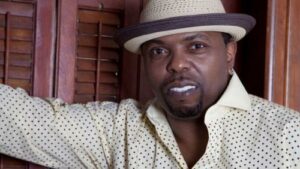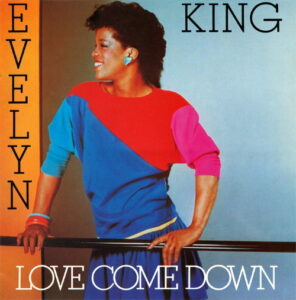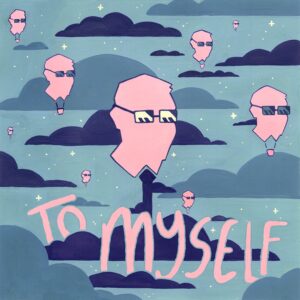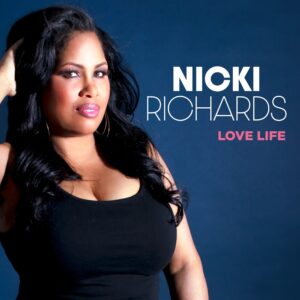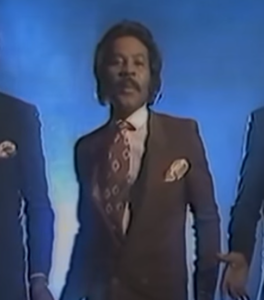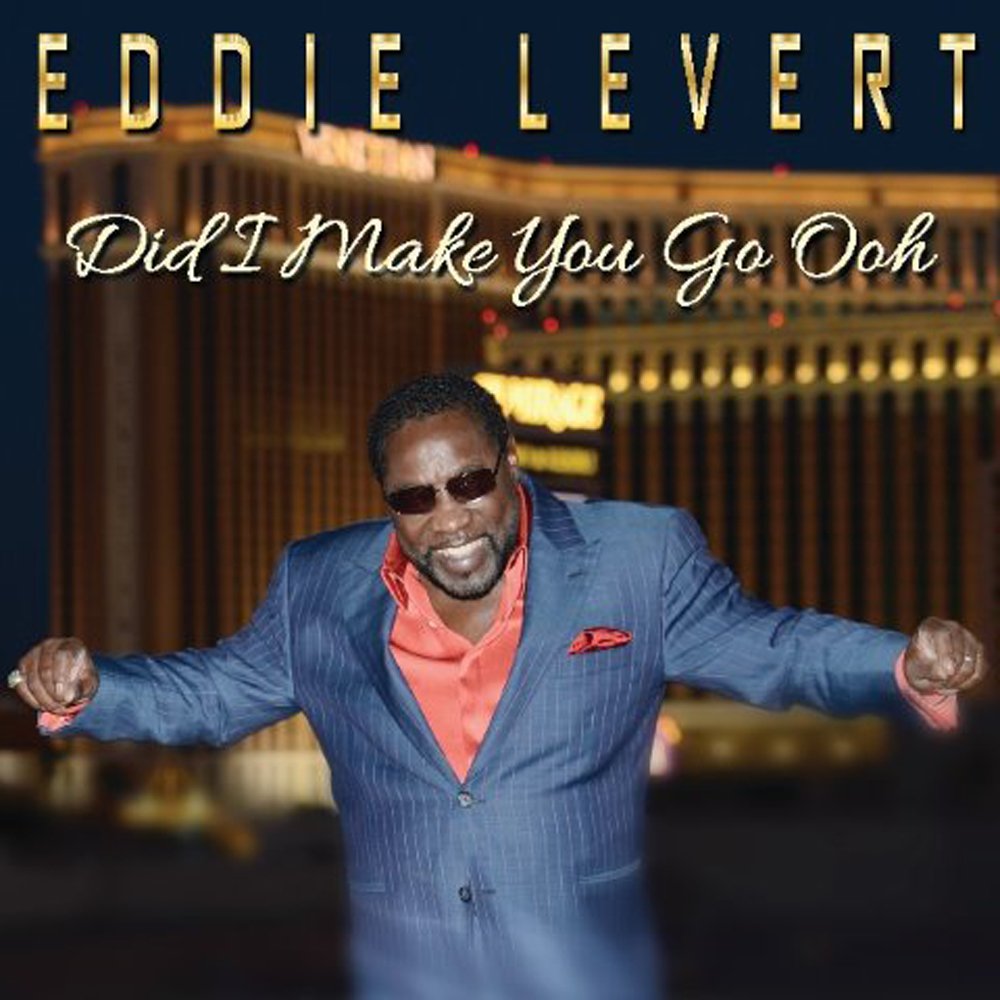As a journalist, Lee Hawkins has spent most of his time giving his viewers and readers the inside story on the world around them. That’s why it shouldn’t come as a surprise that Hawkins is also an R&B songwriter and singer. Still, many of those following his journalistic work have no idea about his musical talents. Hawkins was recently named a Grand Prize Winner in the R&B category of the internationally renowned John Lennon Songwriting Contest for “I Love You Woman,” an adult contemporary song he wrote last year in tribute to single mothers. Winning the JLSC immediately turned the spotlight to his music, prompting Hawkins to release Midnight Conversations, an 11-song album produced by R&B producer George Nash Jr. (Earth, Wind & Fire, Jimmy Sommers, Eric Benet) on iTunes and dozens of other digital outlets.
“I find that journalism for some reason tends to attract musicians. In the various newsrooms I’ve worked in over the years, I’ve run into a lot of them,” said Hawkins, a reporter for the Wall Street Journal and a digital and television personality. “I’ve always been passionate about the art of storytelling in all forms and I’ve never wanted to be one-dimensional. In fact, I’ve always tried to avoid that, to always stay as creative as possible. Writing and broadcasting are both great mediums for telling stories,” he added. “But music, for me, is the most powerful storytelling tool of all, so I do that too.”
The album and the songwriting success follow a long musical hiatus for Hawkins, who stopped writing and performing music after he moved to New York to expand his career into broadcasting, leaving his Midwest-based 8-piece R&B band behind. He plunged back into music after legendary songwriter Diane Warren expressed her optimism during an interview with Hawkins that – despite slower sales of traditional R&B and love songs — there would always be a place in the music industry for well-written ballads. Hawkins, whose songs are targeted mainly at women, now hopes his new music will help quench the thirst of traditional R&B fans looking for new artists and projects.
“Over the years I’ve heard so many people complain that it’s hard to find new love songs and R&B these days. That’s not the only kind of music I write, but I wanted to contribute something to the genre, and I had these songs recorded already, just sitting on a hard-drive,” Hawkins said. “We had no intention of releasing anything. We were just writing music for love-themed TV shows and movie soundtracks. But when I started winning contests with the songs and getting media calls about it, I figured I should release some of them for people to download on I-Tunes.”
Hawkins was one of four finalists in the initial SoulTracks Soul Music Song Competition for another song, “Don’t Run Away.” And years before that – when Hawkins was working as a reporter in Milwaukee and performing gigs across the Midwest – he was a 1st runner-up in one of the ASCAP/RIAA’s Grammy Demo Showcase competitions. His musical talents also landed his photo and an accompanying write-up in Billboard magazine columnist Gail Mitchell’s “Rap, Rhythm, & Blues” column. He also caught the ears of Europe-based Café De Soul label, which included two songs from his 2002 rare release, “Serenade,” on its critically-acclaimed Café De Soul Chapter Threecompilation album.
He says music has been in his spirit ever since he played drums and sang with his gospel musician father and behind countless choirs as a young boy. In that same tradition, Midnight Conversations includes a Christian song, “Redeemed.” “I’ve done everything from singing in little store-front churches, to singing in stadiums at major league based and NBA games, and serving as the opening act for major artists, from Common and Robert Cray,” he said. “But it has never really struck me as odd or unique because it’s always been a part of me. Soul and gospel are part of me. When I moved to Detroit, it didn’t feel right to be away from music, so I joined my church choir there. That felt really good and it was musically fulfilling, but then I moved from Detroit to New York and didn’t start making music again until about two years ago.”
Hoping for new inspiration, Hawkins started flying to Milwaukee from New York to work on new songs with Nash, who had co-written and produced songs on his first project. “George, in my opinion, is an enormously talented musician and a great mentor. I remember one of the earliest sessions where he invited his then-personal manager Gerald Williamson over to the studio to hear what we were working on. We would have eventually stopped, but Gerald kept telling us, ‘Man, you have a vibe; you gotta get back into this. You’re writing piano and violin arrangements in your songs and singing about love-related topics that women really miss hearing. Keep writing, Hawk.’”
Hawkins said the push was exactly what he needed. “Even if I wasn’t winning these songwriting awards, I would still feel good about just being back writing music again. I absolutely love music! I’m the geek always walking around with the big headphones on totally in my own world of soul music. I spend a lot of my free time listening to some of the best R&B singers of all time, so I will never call myself a singer, even though I do sing. I call myself a songwriter/singer as opposed to the reverse. For me, the story is the most important aspect of the song. You don’t have to be the greatest singer, but if you’re inspired by the story, you sing it with emotion, and you connect with your audience that way.”
He was genuinely surprised to win the Lennon contest, mainly because he thought the public’s interest in adult contemporary and R&B music had cut into significantly by trendy pop and dance music. Now, he hopes the project will inspire other R&B artists and songwriters that have moved away from ballads and love songs to come back. “I saw all these great R&B stations going away and all these incredibly talented R&B crooners losing their major record deals, going from stadium shows to casino gigs. I just got discouraged about the music scene and got into the comfortable cycle of not creating, just listening to old, really great R&B over and over and over,” he said. “Then I met Diane Warren and she told me, ‘You know, music goes in cycles. Ballads will be back. And even today, when you write a big one, it stays on the charts for a long time.’ I still want to write well-structured and thought out, meaningful songs. I want to help inspire a movement toward songwriters writing love songs again. That’s something I’m not hearing in a lot of the new R&B out there. I thought, ‘Rather than sitting back and complaining that there isn’t enough new ‘Quiet Storm’ R&B out there, I should go and write some more. It felt good that the Lennon judges and the Soultracks audience liked my songs. It has encouraged me to keep making music, and it shows that there’s still a strong, supportive audience out there for new R&B.”

